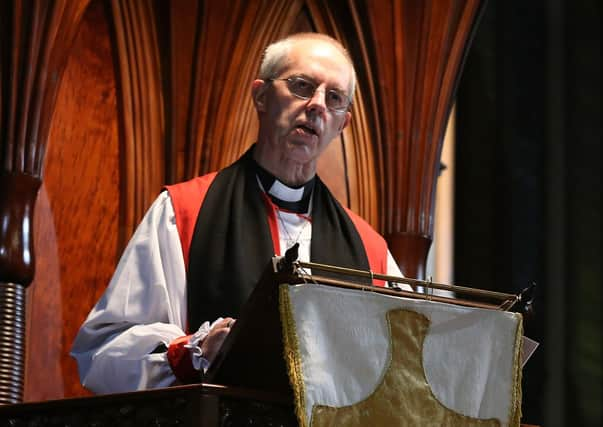Irish state involved in secret legacy talks ‘as partners of UK’


It confirmed this in a statement to the News Letter, whilst on the UK side, the Northern Ireland Office (NIO) said it was “committed with our Irish partners to seek a way forward”.
News of the talks leaked out this week, sparking an angry reaction from victims groups and parties which were not invited, or even notified they were happening.
Advertisement
Hide AdAdvertisement
Hide AdEssentially, despite government involvement (and that of Justin Welby, the leader of the world’s estimated 85 million Anglicans), the discussions had been conducted under a pall of secrecy.
But from what has been gleaned about them, they appear to have totally excluded unionists – or in fact anybody who was critical of the old 2014 Stormont House Agreement legacy proposals.
These proposals (which aimed to somehow deal with the entire unsolved legacy caseload in five years) were seen by many as creating a system which would unduly target alleged wrongdoing by the police and military, at the expense of the far greater bloodletting committed by outlawed terror groups.
The DUP supported Stormont House has shied away from implementing the proposals, which are now largely discredited in unionist eyes.
Advertisement
Hide AdAdvertisement
Hide AdConfirming its attendance, the Department for Foreign Affairs in Dublin said: “As part of our ongoing engagement with a wide range of stakeholders on legacy issues, including victims representatives, peacebuilding organisations, civil society groups, and transitional justice experts, department officials attended a roundtable discussion on Northern Ireland legacy issues at the invitation of the Archbishop of Canterbury.
“It remains the government’s firm position that legacy issues must be addressed through the implementation of the Stormont House Agreement framework, in order to support wider societal reconciliation, build greater community confidence in policing and meet the legitimate needs of victims and survivors in Northern Ireland and across the island of Ireland.
“The government’s consistent position was clearly reaffirmed at the meeting at Lambeth Palace.”
Under Strand One of the Belfast Agreement, the Irish state is not afforded a role in matters relating to the governance of Northern Ireland.
Advertisement
Hide AdAdvertisement
Hide AdIn a statement of its own, the NIO said: “The UK government is listening to people from all communities, victims and survivors regarding legacy issues, and is committed with our Irish partners to seek a way forward for everyone.
“We are not engaged in ‘secret talks’ with anyone.”
And Lambeth Palace (the seat of the Archbishop of Canterbury) said: “At the request of a group from Northern Ireland [it did not say who], the Archbishop of Canterbury hosted a seminar at Lambeth Palace to discuss a presentation from a team of academics at Queen’s University on the legacy of the Troubles.
“This was the same presentation they had given to the Northern Ireland Victims Forum in Northern Ireland earlier in the year. Lambeth Palace is regularly used for such external events and as this was a private event we have no further comment to make.”
l Morning View, page 10
A message from the Editor:
Thank you for reading this story on our website. While I have your attention, I also have an important request to make of you.
Advertisement
Hide AdAdvertisement
Hide AdWith the coronavirus lockdown having a major impact on many of our advertisers — and consequently the revenue we receive — we are more reliant than ever on you taking out a digital subscription.
Subscribe to newsletter.co.uk and enjoy unlimited access to the best Northern Ireland and UK news and information online and on our app. With a digital subscription, you can read more than 5 articles, see fewer ads, enjoy faster load times, and get access to exclusive newsletters and content.
Visit https://www.newsletter.co.uk/subscriptions now to sign up.
Our journalism costs money and we rely on advertising, print and digital revenues to help to support them. By supporting us, we are able to support you in providing trusted, fact-checked content for this website.
Alistair Bushe
Editor